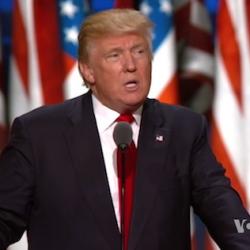Reflecting on President Trump’s trip to Saudi Arabia, Ted Galen Carpenter (co-author of Perilous Partners) notes that “the Saudi regime abets extremism in multiple ways. Riyadh has funded schools (madrassa) in various Muslim countries for decades to promote the Wahhabi religious cult that has intimate ties with the royal family. Wahhabi clerics indoctrinate youth in a most virulent anti-Western perspective.”
Saudi support of terror isn;’t theoretical: “Numerous analysts have noted that 15 of the 19 hijackers on 9-11 were Saudi nationals, but that was hardly the extent of Riyadh’s culpability. Some Saudi officials had at least a disturbingly tolerant relationship with Al Qaeda for years before those terrorist attacks. And the promotion of armed extremist groups did not begin or end with that association. As early as the 1980s, Riyadh made a concerted effort, in collusion with Pakistan, to make sure that the bulk of the financial and military assistance that Washington was providing Afghan insurgents resisting the Soviet occupation went to the most extreme Islamist factions. More recently, Riyadh backed extremist forces trying to unseat the governments of Iraq and Syria. Some of those groups eventually coalesced to form ISIS.” Worse than ironic that we now see Saudi as a partner in the effort to stabilize the Middle East.
Carpenter concludes, “Iran is hardly an admirable power, but the U.S. refrain that Tehran is the chief state sponsor of terrorism is overdone. Indeed, given Riyadh’s track record, Saudi Arabia may be a stronger candidate for that title. Domestically, Iran is certainly a repressive society, but it does have some features of openness. Women have a better status there than in the Saudi kingdom, and there are competitive (if constrained) elections featuring candidates with different views. None of that is allowed in Saudi Arabia.”















